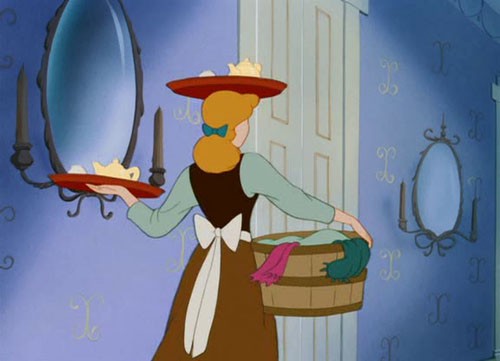Want to Know More About the Rich? Ask the People Who Clean Up After Them

Last (Summer) Friday, Mike asked the question “how do we study those who do not want to be studied?”
He was referring to a paragraph Choire Sicha cut (and then Tweeted) from his New York Times Magazine article “Letter of Recommendation: Summer Fridays,” suggesting that people with privilege avoid scrutiny in a number of ways:
Well, it turns out that one way to study the privileged is to work for them — and there is no better way to see how the rich live than to literally clean up their garbage.
Stephanie Land’s recent Vox article “I spent 2 years cleaning houses. What I saw makes me never want to be rich.” describes her own, unscientific study of privileged lives, best summed up as follows:
The bigger the house, the more they worked to afford it, the more prescription bottles they had.
There’s more than a hint of ableism to the idea that taking a large number of prescriptions is “bad,” but Land’s thesis is that the rich are as stressed and dissatisfied as the rest of us, if not more so:
I searched for the stashes of empty wine bottles and peeked into medicine cabinets. I checked how many pills they’d taken in two weeks and learned which prescriptions had turned into recreations. I found pills for everything: pain, anxiety, sleeplessness, depression, impotence, allergies, high blood pressure, diabetes. There were other medications, too. My personal favorite: a topical testosterone cream.
The problem with this piece is that the issues Land describes seeing in her clients — bulimia, sexual dysfunction, even sinus infections — are not exclusive to the rich. If anything, people with higher incomes have more resources to apply towards medical and mental health treatment, leading to a larger number of prescription bottles in the medicine cabinet.
Land ends with the idea that, having seen how the rich live, she no longer wants to be among them. After all, as we’ve written before — and quoted by an actual rich person! — being rich is just the worst.
There is no way that any sociologist could do a significant study of rich people by secretly going through their garbage. (For starters, that research project would never get IRB approval.) But if you want to know more about this elusive, under-studied group, the people who work for them probably have more than a few insights about their habits, their values, and what they do on a Summer Friday afternoon.
I’d be curious to see how many of these people said that they, too, would prefer not to be rich. It just doesn’t seem like a life goal I’m ready to give up on yet — but as we learned last Friday, I’m on Team Amy March, and we all know how her story ends. What about you?
Support The Billfold
The Billfold continues to exist thanks to support from our readers. Help us continue to do our work by making a monthly pledge on Patreon or a one-time-only contribution through PayPal.
Comments